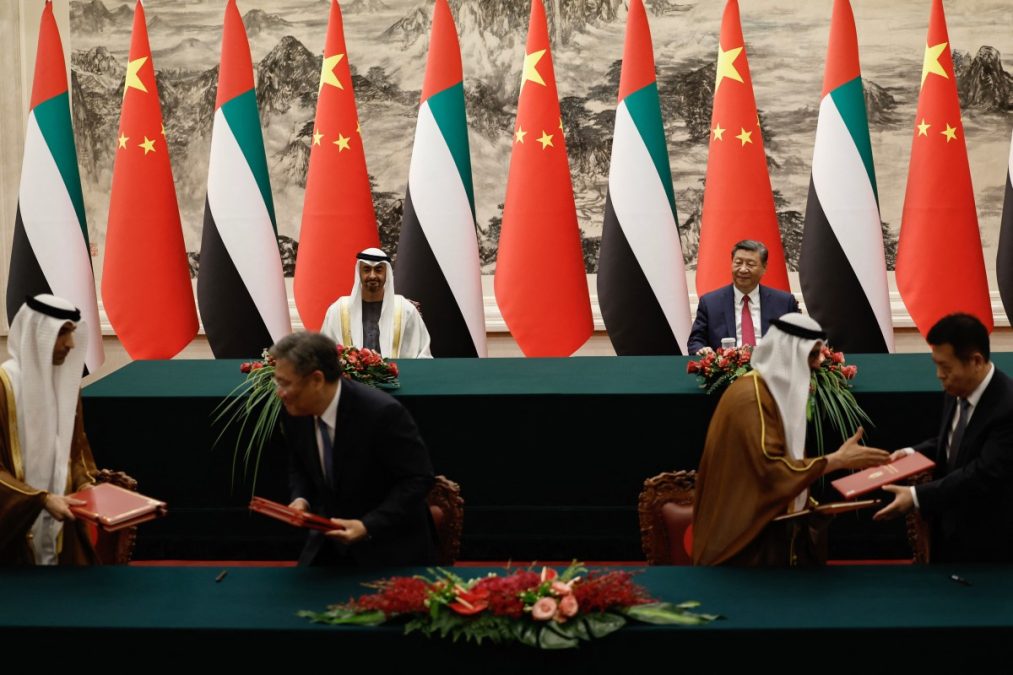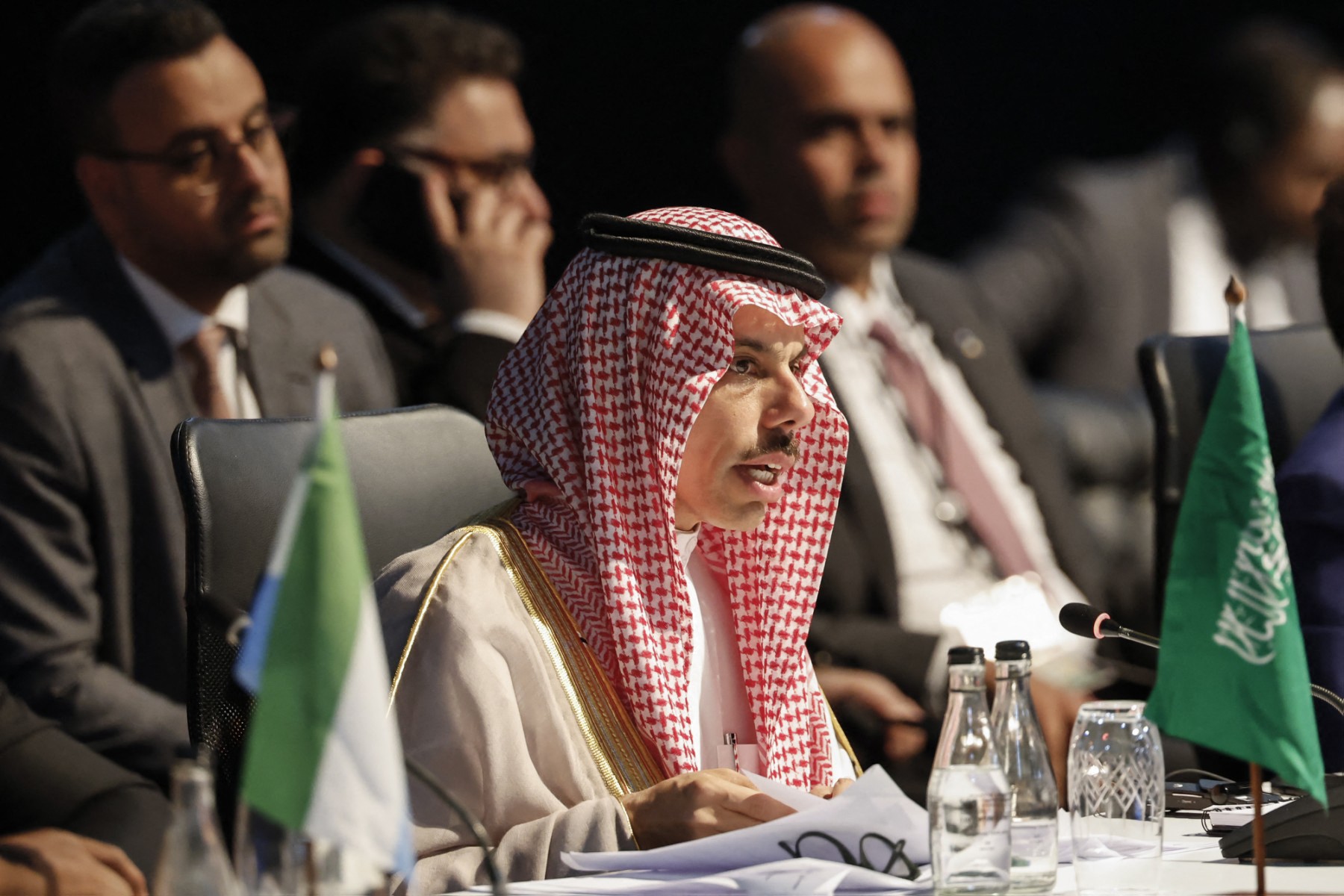With the ever-evolving and ever-changing business and economic dynamics across the world, countries are taking steps to watch out for themselves and are increasingly diversifying their trade relations. The Arab world is no different.
Arab economic powers such as Saudi Arabia and the United Arab Emirates have intensified efforts to diversify their strategic business relations with economic powerhouses such as China, Russia, and India. However, the Arab powers have also kept their traditional ties with the nations in the European Union and the Americas, particularly the United States, intact.
Certainly, the visionary leadership of the Arab economic powers expects their economies to grow exponentially in the next 10-20 years, and the high-growth environment needs more partners to fuel foreign investments and trade.
The UAE President Sheikh Mohamed bin Zayed Al Nahyan, who is in Russia, to attend the BRICS Summit in the city of Kazan underscored the growing bilateral trade between the UAE and Russia in a meeting with President Putin. Also, the UAE has already proven its leadership and diplomatic mettle by successfully negotiating prisoner exchange between Russia and Ukraine, where each country swapped 95 prisoners of war.
After the UAE President arrived in Moscow, Russian President Vladimir Putin showed his excitement in sharing the latest update on bilateral trade saying that the UAE-Russia trade has tripled in the past three years to US$11.1 billion.
The UAE announced officially joining the BRICS group in August 2023. Following the joining, the UAE Minister of Foreign Affairs Sheikh Abdullah bin Zayed Al Nahyan said: “This development forms part of the UAE’s commitment to promoting constructive dialogue through active platforms that represent developing and emerging economies, and the country’s focus on long-term economic prosperity and maintaining balanced strategic and economic relations – including with international organizations – in an ever-evolving world order.
“The UAE has consistently championed the value of multilateralism in supporting peace, security, and development globally,” said the minister.
Even though Saudi Arabia was invited to join BRICS, but the Arab power has not done so officially. According to a communique from Russia’s Kremlin, Saudi Crown Prince and Prime Minister Mohammed bin Salman is likely to skip the BRICS meeting in Kazan from October 22 to 24, but the country will be represented by Saudi Foreign Minister Faisal bin Farhan.

With Mohammed bin Salman not attending the BRICS Summit, some might suggest that Saudi Arabia is not interested in upgrading its relationship with the BRICS nations. The claim of Saudi aloofness regarding BRICS might look rather far-fetched if you follow Saudi media. Leading Saudi English daily Arab News reported last week that the Russian President views Saudi Arabia as a serious partner for Russia-Ukraine peace talks.
Answering a question by Arab News editor-in-chief Faisal Abbas during a press meeting in Moscow, Putin said that he was open to the idea of participating in a peace conference hosted by Saudi Arabia.
Putin acknowledged his close personal relationship with the Saudi leadership. “We consider Saudi Arabia as a friendly country. I have very good relations with the King and generally friendly personal relations with the Crown Prince. And I know, I’m just sure that everything Saudi Arabia does in this area, it does sincerely, I have no doubts here. And therefore, if such events are organized in Saudi Arabia, of course, the venue itself is quite comfortable for us,” said Putin, according to media reports.
Recent Russian trade figures suggest that Russia-Saudi Arabia agricultural trade has reached $1 billion per year, mainly thanks to the exports of Russian grain to the Saudi market. The Saudi official stats suggest that the total bilateral trade stood at US$3.34 billion in 2023. Saudi non-oil exports included aluminum, plastics, varieties of ordinary metals, fruits, and organic chemical products, while non-oil imports included metal products, grains, meat, iron, steel, animal fats and vegetable oils.
In a meeting with Saudi officials in July this year, Deputy Prime Minister of Russia Dmitry Patrushev said: “I believe it is necessary to continue working together. I’m confident that we have significant potential for further growth. Russian companies, in particular, are interested in boosting supplies of grain, fat and oil products, confectionery and halal meat products to Saudi Arabia.”
BRICS, originally comprising Brazil, Russia, India, and China, has expanded to include South Africa, Egypt, Ethiopia, Iran, and the United Arab Emirates, with Saudi Arabia on standby.
Looking at major trading partners of Arab countries, China was Saudi Arabia’s largest trading partner with bilateral trade exceeding US$100 billion in 2023. The UAE-China bilateral trade stood at US$95 billion in 2023. In the first half of 2024, the figure reached nearly US$50.11 billion.
The total trade between India, another BRICS member, and the UAE, which was valued at US$180 million annually in the 1970s, surged to US$83.65 billion in 2023-24. In the financial year 2024, bilateral trade between Saudi Arabia and India reached US$43 billion.
Bilateral trade between Saudi Arabia and Brazil stood at around US$8 billion in 2023, while trade between the UAE and Brazil stood at US$4.4 billion in 2023.
Also, bilateral trade between the UAE and the United States was US$31.4 billion in 2023, with the US having a trade surplus of US$18.3 billion. According to the US-Saudi Business Council, the US-Saudi trade volume stood at US$29.7 billion in 2023.
Bilateral trade between Saudi Arabia and the United Kingdom in the 12-month period ending in Q1 2024 was £17.6 billion or US$23 billion, while during the same period, trade between the UAE and the UK was £25.2 billion (US$33 billion).
Simple math would demonstrate that Saudi Arabia’s trade with two major BRICS members India and China stood at US$143 billion in 2023 as against its combined trade with US and UK, which was only US$52.7 billion. Similarly, the UAE’s trade with China and India combined was US$178.6 billion, while with US-UK it was US$56.5 billion.
It doesn’t take long to figure out that over the past decade or so, Arab economic powers such as Saudi Arabia and the UAE have diversified their foreign trade portfolios.
The ongoing conflict among Israel, Palestine, and Lebanon has resulted in the tragic loss of thousands of lives, displacement of millions, and destruction of cities, villages, and infrastructure – especially in the Gaza Strip and Lebanon. In the corridors of power, Arab leaders have expressed their deep frustration at the Western leadership’s lack of influence to rein in Israeli Prime Minister Benjamin Netanyahu.
One of the reasons behind Arab countries’ close ties with the United States is that Washington D.C. keeps Tel Aviv in control, but these past 12 months have proven that despite the US sending billions of dollars in aid to Israel, the Biden Administration has no leverage against Netanyahu’s regime.
Owing to the new and evolving realities, bilateral trade diversification is a testament to the growth mindset of Arab economic powerhouses, and embracing the BRICS group with open arms indicates the pragmatism of Arab leaders.
The author is a senior journalist based in Toronto, Canada, and is also the Executive Editor and Chief Growth Strategy Officer of the UAE-headquartered content management and creation firm Special Edition.
The views and opinions expressed in this Op-Ed are solely those of the author and do not necessarily reflect the official policy or position of TRENDS.
X: @AtiqueNaqvi








